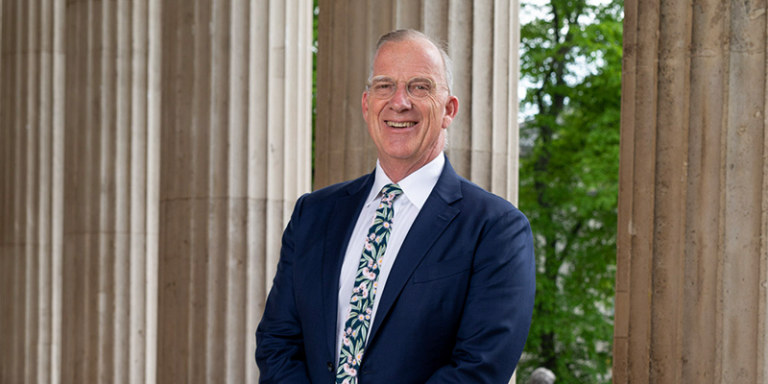Universities should be playing a vital role in meeting the economic growth challenge
4 October 2022
Ever since UCL was founded nearly 200 years ago, our university has been deeply engaged with the wider world and committed to changing it for the better by using our disciplinary excellence and cross-disciplinary approach to tackle global challenges.

Dr Michael Spence AC, President & Provost, UCL
This appeared first in the UCL Policy Lab Magazine
Perhaps the central challenge of the moment for the UK is how we achieve economic growth. It is one of the issues on which both the Prime Minister and the Leader of the Opposition agree. Meeting that challenge will have a huge impact on how we meet others, from tackling the rising cost of living to tackling climate change and realising the benefits of data enabled societies.
UCL and the wider higher education sector have a vital role to play in how we can increase growth in the UK economy, including through greater productivity and investment[OS3] .
There is already a hugely positive story to tell. Recent analysis found that UCL each year has an economic impact comparable to the trade boost following the London 2012 Olympics. A total of £9.9bn, across the UK. In all, our impact supports 19,000 jobs across the UK economy – over 7,000 of them outside of London.
It is important to explain how universities drive growth too. Take our research and knowledge exchange[BJ4] . A key part of that is how our research innovation brings in private investment. An area that is key to the UK unlocking growth. Two ways in which UCL brings in investment are through spinout companies and graduate start-ups. At present UCL has 72 active spin-outs and 195 graduate start-ups, organisations which have attracted £639 million in external investment. [KW5]
A recent example of a graduate start up is that of Afrocenchix. Co-founded by graduate Rachael Twumasi-Corson to develop natural and safe products for Afro and curly hair, it launched in 2010 and it has been awarded seed funding from Google. It has since been named one of the ‘hottest Black-led start-ups in Europe’ with products being sold in 27 countries globally[OS6] .
While I am proud of our contribution on growth and beyond, I am also clear that we must continue to improve.
To do that we need to work in collaboration and partnership. Our impact in science and technology is underpinned by vital business partnerships. Partnership is key to how our spin out companies drive innovation and bring in external investment. Working with business can help researchers move f
rom discovery to practical use and with the commercialisation of ideas, often for life changing technologies.
During the pandemic UCL and University College London Hospital worked with Formula One to rapidly develop a low-cost, easy-to-use breathing aid (called CPAP) to help keep COVID-19 patients out of intensive care. More than 1,000 devices were exported, and the information needed to build CPAP was made available online so that groups around the world could manufacture them. CPAPs have now been used in hospitals in 26 countries across the globe, from Peru to South Africa[OS7] .
Our collaborations and partnerships go beyond business too, as the UCL Policy Lab makes clear. We work with and listen to government, locally and nationally, to political parties, the third sector and of course other academic institutions. The NHS has a huge role to play too. We work with six major NHS Trusts, and we have major health and life sciences partnerships with the Francis Crick Institute among others.
In London, we work closely with local Boroughs near our campuses in Camden and Newham, where our new UCL East campus will be based, and in other areas of the city. The university works to answer questions that the community sets. In some instances that has a direct impact on economic growth, addressing for example post covid town centre recovery. In others the affect is less direct. Our work on mental health, which can be major barrier to entering the labour market. And UCL students contribute over 63,400 hours a year in volunteering.
As ever, it is not just our expertise and academic excellence that makes the higher education sector vital to our prosperity, it is our ability to exchange ideas.
That is why this autumn I am excited to be at the party conferences to listen to our political and other leaders, and to talk about how UCL and our sector can work in partnership with them to meet the growth and other challenges we face.
 Close
Close

